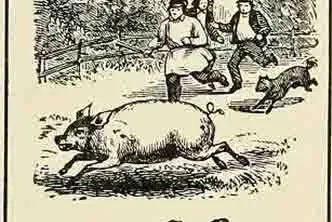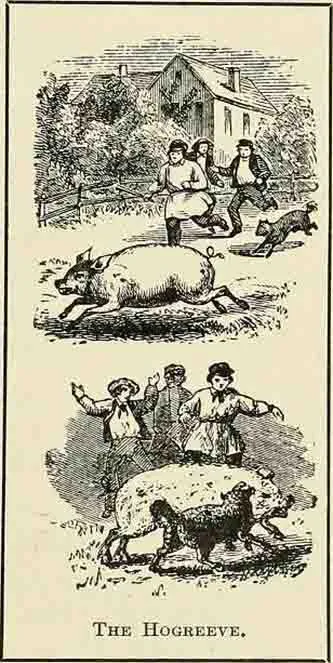

Over at the Panorama, historian Gabe Loiacono introduces us to hog reeves. “Hog reeves were annually elected town officers,” he writes, “whose part-time position ensured that all hogs in the town wore a yoke and a nose-ring and were generally under the control of the townspeople. The job could include chasing and wrestling hogs.”
Here’s more from the piece:
Reader, I am curious. What do the words “Hog Reeves Are Part of the State, Too” say to you? These words are the title of my introduction to this summer’s JER forum on local governance. I hope they signal that even hog reeves, the lowliest of local officials, had significant power. As I write in the forum introduction, “Local governments shaped the lives of early republic Americans more profoundly than national or state-level government did. And yet, we historians of the early republic talk about local government the least.” The forum expands on that point quite a bit. The forum does not, however, give much attention to the office of hog reeve in particular. In this Panorama piece, I would like to remedy that. Hog reeves were annually elected town officers, whose part-time position ensured that all hogs in the town wore a yoke and a nose-ring and were generally under the control of the townspeople. The job could include chasing and wrestling hogs. Successful candidates were often the youngest and least high status of local men qualified to vote, accorded little respect, as we shall see. But I think it is time we give them their due.
And this:
I would add that hog reeves and measurers of salt and selectmen were part of a powerful and long-lasting state, which taxed and regulated and literally came face to face with citizens, far more than state or national-level government in that period. That is the story that my fellow writers and I are getting at, in our forum for the Journal of the Early Republic. If we want to know how early republic Americans experienced government, then we must give hog reeves their due.
Read the entire piece here.